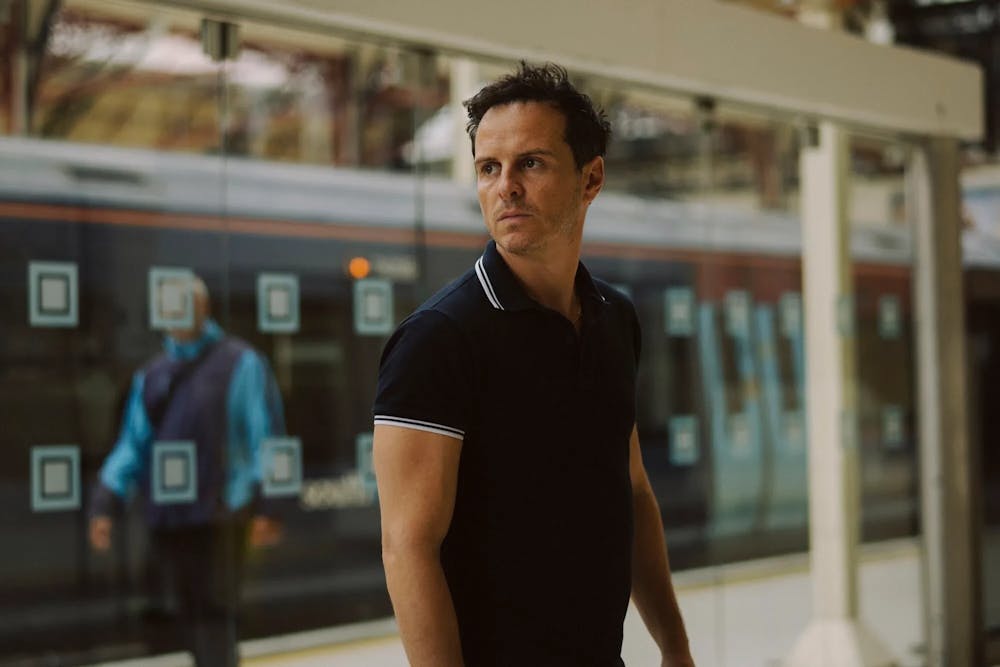Andrew Haigh’s newest film All of Us Strangers is a haunting, beautiful rumination on grief, loneliness, and the power of love.
Andrew Scott stars as Adam, a lonely middle-aged man who returns to his childhood home and finds the house and his parents, exactly as they were 30 years ago before they died suddenly in a car accident. As Adam attempts to understand the situation he grows closer with Harry, played by Paul Mescal, a mysterious younger man who lives in the same near-empty London apartment complex.
The film is a loose adaptation of Taichi Yamada’s 1987 novel Strangers as writer and director Andrew Haigh strays away from the original novel and tells a much more personal story. For most of the film, Haigh creates beautiful and rather unadorned visual compositions with the use of naturalistic lighting. His use of long dissolves evokes Scott’s character floating from scene to scene like a ghost which adds to the supernatural tone of the movie.
All of Us Strangers grapples with how social landscapes have changed astronomically for queer people over the past decades. The generational difference between Adam and Harry at first feels negligible, but as the characters discuss their family relationships, the feeling of isolation they felt from growing up “different”, and the pain those feelings caused, creates a shared moment of emotional clarity. This monumental moment comes from them just addressing casual homophobia and HIV-associated anxiety as two characters who experienced those very differently.
With that being said, the film offers more than an insight into the ways queer identity affects romantic and familial relationships. It works to reconcile the past with the present and the profound ability we have to heal pain with love, no matter how fleeting those connections may be. The supernatural nature of the plot is superseded by Haigh’s deeper desire to explore these very real characters and their relationships in the face of an incredibly lonely and sterile world.
Andrew Scott’s ability to breathe so much life and vulnerability into his character, while also capturing immense grief and loneliness with a remarkable honesty, gives the film its heart and soul. Mescal, who was nominated for both a BAFTA and an Academy Award for his role as a troubled father in “Aftersun” last year, gives a heart-wrenching performance that is both melancholic and seductive. Even supporting performances from Claire Foy and Jamie Bell as Adam’s parents were just as breathtaking.
The soundtrack features staple Britpop groups of the 1980s and does much more than capture the essence of Adam’s nostalgia — it deconstructs it. The songs are familiar, but often distorted in a faded-out, spectral way.
Music is a conduit between Scott’s character and the apparitions of his parents, as well between him and Harry. In their first conversation, Harry drunkenly tells Adam, “there are vampires at my door” as he seeks companionship, echoes the lyrics from the film’s definitive anthem, “The Power of Love” by Frankie Goes to Hollywood, “I’ll protect you from the hooded claw, keep the vampires from your door” showcasing the promise we make to those we love.
Devastating and deeply intimate, All of Us Strangers pushes its central character and audiences to not live on the sidelines of our own lives, to not be strangers to the world, but to persevere and forge human connections despite the risk.
All of Us Strangers is now playing in theaters and streaming on Hulu on February 22, 2024.





